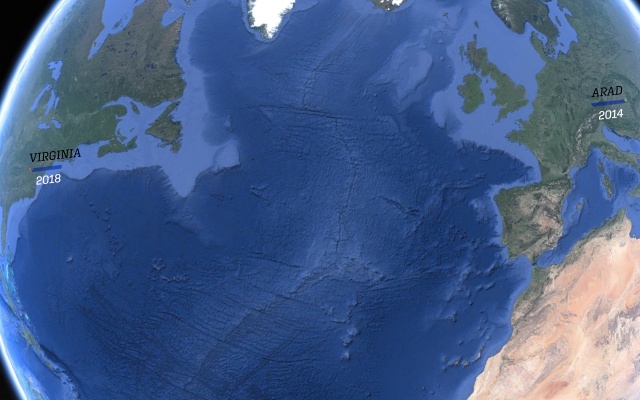LONDON: Things do change. Even for hackers.
The story of Romania’s Guccifer – now serving time at the pleasure of the United States Corrections Department – is the story of the last freelance “hacktivist” of note, anywhere in the world.
But in Eastern Europe hacking continues to flourish in other forms. The region’s hackers thrive on a unique combination of IT engineering education, ever-closer economic integration with the West, via the EU membership of its largest countries, and continuing deeply seated lawlessness and corruption, From Russian spies to gangs of fraudsters, today’s Eastern European hackers have left behind the romanticism of Guccifer and embraced drab professionalism in all its monotony.
Guccifer is the Romanian hacker Marcel Lazăr Lehel who stunned the world with his audacious publication of stolen emails from George W. Bush, Colin Powell, Sidney Blumenthal, and other top politicians in the US, alongside a long list of Romanian celebrities and high-ranking officials, including George Maior, who at the time was the head of Romanian intelligence and then became Romania’s ambassador in Washington, a post he still occupies. I profiled Guccifer for the San Francisco website Pando.com in 2015, and later blogged about my acquaintance with him and his wife in the city of Arad, in the middle of the dry plains of Western Romania.
He was arrested in Romania in 2014 and extradited to the US in 2018, where he is currently being kept at a maximum-security federal penitentiary in Virginia. He is due to be freed some time in 2022, according to media reports, though neither he nor his wife know when exactly.
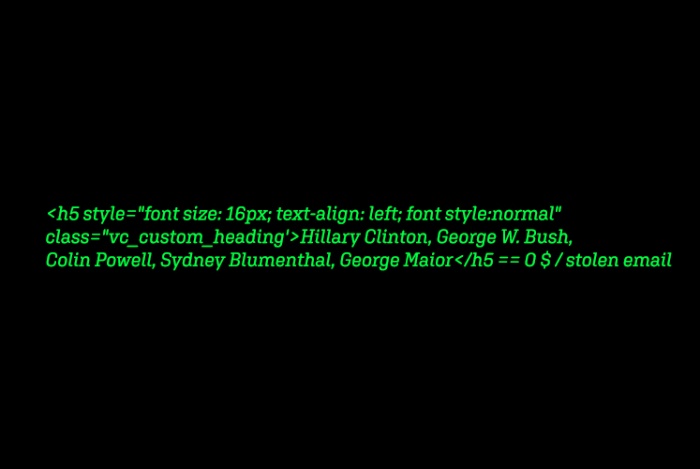
To hack computers for profit in Romania is a path to wealth, fast cars, and underworld fame, as documented by HBO in its recent film Hackerville, as well as other journalistic and police investigations. Folk bands write songs about you. Romania remains Eastern Europe’s hacking capital – the other side of the country’s burgeoning IT industry that saw companies like Microsoft and EA games open large offices, and local startups like UiPath achieve “unicorn status.” Sometimes, the world of crime even touches on Romania’s corner of Silicon Valley as happened recently when the head of Oracle Romania was charged with bribery.
Guccifer, however, remained unique, because he was not interested in money. He wanted something more complicated – a global audience for his unifying, disturbingly racist and antisemitic conspiracy theory of global domination by the Illuminati.
The story of Guccifer and of Eastern European hacking intertwines oddly with the dominant geopolitical story of today, which is Trump’s unexpected election. For it was Guccifer who first revealed that Hillary Clinton was using a personal email account to conduct official work, something that the Trump campaign picked up and amplified to unprecedented levels, giving eventual rise to the half-ironic idiom, “but her emails,” used every time a new outrage emerges about Trump’s behavior either in business or towards women or ethnic minorities.
The story of Guccifer, with hindsight, is the story of a globalizing Eastern Europe and the epitome of how the internet itself has changed over the past five years.
I say it with some awareness of how pretentious this sounds but I say it because the same changes swept over Guccifer’s world as over all of us, leaving only half a decade later, an unrecognizable, and in many ways, incomparable situation.
Chiefly, these changes affected the internet, which is itself the forefront of our common sphere.
Where there was anarchy and radical equality (illustrated by a destitute taxi driver breaching the email address of a former US President) there now is corporate dominion. Where there was once idealism, there now is pious commodification. Where there was once free exchange and rugged privateerism, there now is state intervention and appropriation.
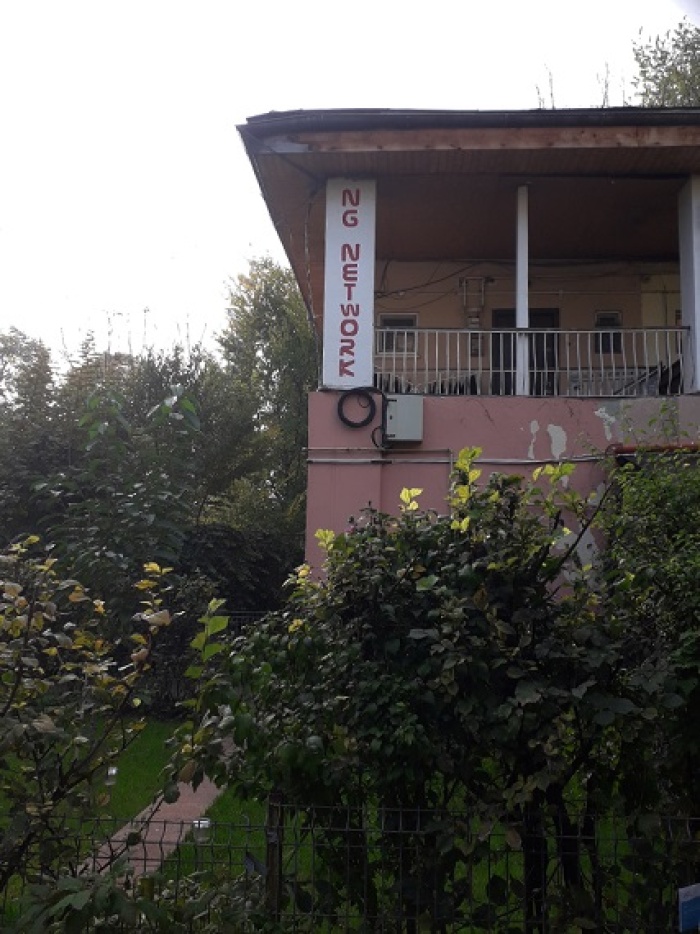
NG Network, lokalny dostawca internetu, Bukareszt. Zdjęcie: Mihai Năstase.
In discussions with friends I call this simply banalization. Everything has a price tag and nothing comes from the heart. Romania once had “block networks” – a cottage industry of small internet service providers with a few dozen subscribers each that linked with each other in their hundreds and created the first post-dialup broadband option in the country. Now the supply is controlled by three major companies. These analogies might continue. Where there was Guccifer hacking Romanian spies and politicians out of a warped sense of social justice, there is now the private espionage firm Black Cube hacking Romanian prosecutors who dare to bring justice to Romania’s politicians. Guccifer once had a name which with some pride and involuntary humor he declaimed to signify “the style of Gucci and the light of Lucifer.” Now the Kremlin has Guccifer 2.0.
The atmosphere started to change, in my perception, when the US presidential race began to heat up ahead of the 2016 elections. But the real turning point, the moment in history to which you can point your finger and say, here is when one era ended and another began, was the revelation of hacking of the Democratic National Convention in June 2016.
I recall a small-town lawyer calling me on my mobile from a small town near Philadelphia one day, asking searching questions about whether Guccifer ever confessed to breaking into Hillary’s own email address (something that he admitted on record he didn’t do). The more I told the lawyer that is unlikely to have happened because Guccifer would have bragged about it, the more disappointed he got. Because he wanted out of his small town and Gucci, the poor rural taxi driver and paint salesman, was his ticket to Washington. A new craze was being born, and like all good ambulance chasers, my American lawyer had caught its scent. That craze morphed from the right wing, which deployed conspiracy theory against Hillary Clinton, to the left, which spawned Russiagate – the notion that Trump was a paid-up “asset” for Putin’s intelligence service, and that, in effect, Trump’s election was the end of American independence. Russiagate has yet to die down even if it suffered a retreat following the Mueller report, which said that although Trump might be chargeable with obstruction of justice, and impeachable for that reason, there was no evidence of active conspiracy between Trump and the Kremlin. The known facts suggest they were merely fellow travelers, as Putin, long harboring contempt for Hillary, had turned all his masters of the dark arts against her, while Trump lapped it up.
Indeed, the same report found solid evidence that the Kremlin had become, in the process of trying to twist the fate of the US election, the dominant hacker collective (in the loose sense of the term) in Europe, if not the world.
Hacktivism has been in decline in recent years, having peaked some time in 2016, according to a report published in August by US cybersecurity company Recorded Future, whose research division is called Insikt Group. “Multiple threat actors such as Guccifer 2.0, 1937CN, Guardians of Peace, and the Shadow Brokers have conducted cyber operations claiming to be hacktivists, only to be revealed or suspected as groups operating for or connected to nation-states.” the report said. “Insikt Group assesses with high confidence that nation-state entities have increasingly used hacktivism in association with strategic campaigns, by coordinating with legitimate hacktivists of like mind, and have conducted false-flag operations made to appear as unassociated, independent hacktivist activity.”
Furthermore, organized crime networks have become more professional in using hacking, and evidence points to an unholy alliance between hackers and the intelligence services of countries such as Russia and China.
FireEye, another US cyber consultancy, said that China was allowing organized crime outfits to hack for their own profits unimpeded so long as once in a while they did the Communist party a favor. A report from August said APT41, a criminal group whose initials stand for Advanced Persistent Threat, “is a Chinese state-sponsored espionage group that is also conducting financially motivated activity for personal gain.”
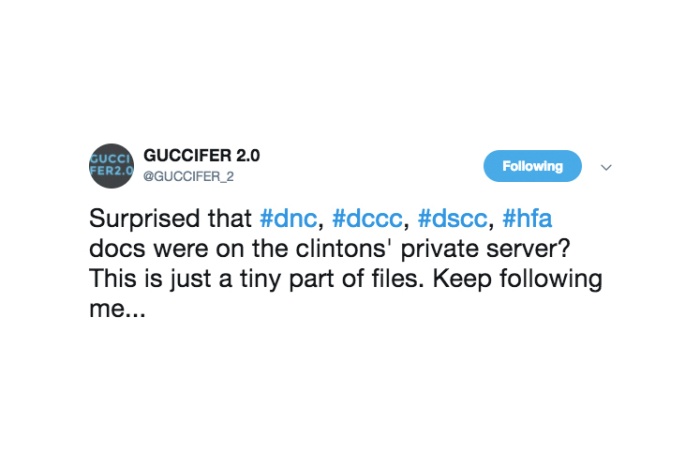
The gang was found to have conducted covert surveillance of targets, committed financial crime such as virtual currency market manipulation, attempted ransomware attacks, and stolen source code.
For the motherland, it did old-fashioned economic espionage through the computer, by infiltrating and stealing the business secrets of companies in healthcare, high-tech, and telecoms.
Russia and others were revealed to be using black-hat or criminal hackers to carry out state policy.
Needless to say, Guccifer would have disapproved. But the Kremlin never asked him what he thought, when, rather ironically, in a typically Putinesque postmodern way, the FSB hijacked – some might say hacked – Guccifer’s name to launch its operation against the US election.
Guccifer 2.0 was born. When the news hit Romanian TV station my father accused me of having been a useful idiot for the Russians when I portrayed the original Guccifer as a fantasist criminal with a certain investigative talent and an overactive imagination who, I asserted, was nevertheless free of any state taint.
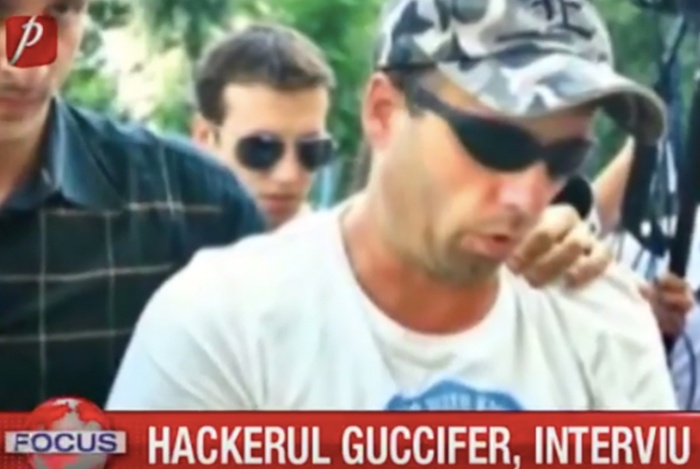
Aresztowanie Guccifera, wiadomości w rumuńskiej stacji telewizyjnej, Focus PrimaTV.
Explaining my view to Father led nowhere. Here’s Guccifer again, and he works for the Russians, he said, pointing to the TV screen, which clearly read, Guccifer 2.0. I protested. But my dad does periodical car roadworthiness inspection for a living, and he tends to explain the world through car metaphors.
“A Volkswagen Golf 4 is still a Golf, isn’t it?” he said.
“Yes,” but…
He turned his back to me triumphantly and went to the bathroom to have his eighteenth cigarette of the day. Putin, the defining figure of modern politics, had won again.
These days the investigative website Bellingcat is trying once again to use Guccifer’s name in vain, by referring to a third incarnation, “Guccifer Rising” as the Kremlin-enabled attack against itself and its associates via the supposedly secure Swiss email service ProtonMail.
If nothing else, this is more proof that Guccifer won his much-coveted fame. He is now firmly lodged in the collective consciousness of computer geeks worldwide. He would, of course, also say that such attacks are unbecoming of his supernatural abilities – why “phish” someone’s email when you can just guess the password?
Another pertinent question: who needs the password when you can hack the very person who owns it? In the five years Guccifer has been locked up, the very meaning of the word “to hack” has changed, acquiring a connotation of manipulation, subliminal messaging, and para-scientific programming alongside its older definition, which was more straightforward. Note, if nothing else, the title of the recent Netflix film, The Great Hack, which dealt with Cambridge Analytica’s supposed mass manipulation of voters in favor of Donald Trump and Brexit. In Guccifer’s time, this would have not been a widely recognized use of the word.
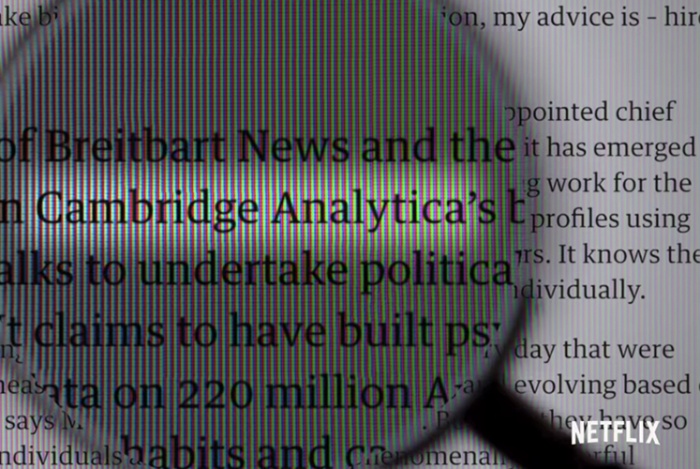
Klatka ze zwiastunu filmu Hakowanie świata [The Great Hack], reżyseria: Karim Amer, Jehane Noujaim; dystrybucja: Netflix, 2019.
The connotation of the word is changing before us now, with hacking ceasing to mean the action of breaking into an IT system, but merely manipulating someone to your will, with or without IT help. It has been broadened to include uses such as “brain hacks”– shorthand for self-improvement tricks used to quit smoking or focus better at work. The film The Great Hack – an example of conspiracy theory itself, relies on this newly evolved sense of the word. Because Cambridge Analytica did not break into anyone’s computer – it simply obtained private information under false pretenses and used it towards its commercial goals. Very similar techniques were used in Obama’s election campaign in 2008, but then no-one accused him of hacking democracy, because perhaps he had been slightly ahead of his time in more than one way.
Here again, Guccifer was one of a kind, straddling the two definitions. He didn’t use coding, but informed guesswork and pop psychology, yet he did break into computer systems, not by contamination but by guessing the password. He fashioned the key to your front door, but the door was left intact after he rummaged through your laundry basket. He straddled the old world of hacking and the new one, and like most pioneers in any field, he relished the short-lived glory but did not enjoy the spoils. He is somewhere in a maximum-security jail in Virginia at the moment, wearing an orange jumpsuit, probably scoring extra breakfast buns from the canteen with his wild tales of the Illuminati.
Indeed, some of Obama’s worker ants have gone on to work as privateering social media hackers embroiled in Russiagate on either side of the battle, as the Gray Zone website has found.
Guccifer has, for all of his wrongheadedness, callousness, and self-delusion, stumbled onto something whose power it felt but which it didn’t fully comprehend. He landed in the middle of this brave new world of conspiracy theory, cultural war, identity politics, and great empire conflict. He was an idealist. The streaker at the funeral. He saw himself as a hero when I met him and he likely still does. Tragically for him there is no space for idealists in our postmodern multidimensional reality anymore. Certainly not those as uncompromising as Guccifer and definitely not on the internet, where everything is recorded and spat back in your face every minute of the day.
Because as unforgiving as our real life has become in the globalized panopticon, it is even more hateful to live vicariously online, as Guccifer once did.
The internet corporations absorb everything and they monetize our feelings until there is nothing but hate left.
Anonymity, rebellion, mischief, farce, curiosity, picaresque playfulness, were all things that the old internet was full of, that Guccifer had, and that went away as he was locked up, almost in lockstep. These things are in prison with him, keeping him company – and we should admit we are fools if we don’t miss them at least sometimes.
Today, Guccifer’s accidental utility for the American alt-right political machine is spent, and he has been forgotten by the hordes of online fans who once hailed him a hero to the cause. He does not work in the prison and he is not allowed to use computers. His wife, Gabriela, who still believes in him, is working in Romania to support their daughter as well as him. She still lives in the same house on the edge of Arad and sends money to his prison account as much as she can, she told me on the phone. “We don’t talk politics anymore,” she added. “The admirers are not helping, we cannot count on them.”
She declined to take any more calls and gave me the impression that all she wanted was for the entire misadventure to be over. “I won’t say anything else to you.”
How time flies. How life shrinks, and how words lose their meaning. Facial recognition, state supervision, WiFi sniffing, cookie retrieving. With the technology available commercially today – nevermind to those in government – Guccifer would have never stood a chance, and the world would have never known the depths of George W. Bush’s talentless artistic depravity.
Like most people who regard themselves as heroes, especially while being guilty of serious crime, Guccifer was used by those with vested interests. He was naive, but pure. Innocent like an unpleasant child. I don’t mind admitting that I have judged him for sacrificing his family’s happiness for the sake of his Quixotic vanity. It broke my heart to see the conditions his wife and child lived in while he told tales about the real cause of Princess Diana’s death. He had a choice, long before any of this ever happened, a choice to stay anonymous and join the police, or at least the local council’s audit office, or to have a go at hacking the emails of famous people in order to make himself famous.
We know what he chose, and I believe it was the wrong choice. But if we enter his own deranged mindset for a minute, and if we examine the immense ripples Marcel Lazar-Lehel made through the stream of contemporary history, was it really a choice at all?
BIO
Matei Rosca is a formerly destitute Romanian country boy who has been living in London since 2012. He is a finance reporter at POLITICO Europe, and is working on his second novel, a political sci-fi, and his first nonfiction book, about the dying days of the Communist regime in Romania. His first novel was a comic take on The European Way of Life and is still unpublished.
He has been doing investigative journalism since 2013 as a freelance reporter Private Eye Magazine (UK), the Guardian (UK), Gazeta de Romania (London), Huck Magazine (UK), ITN Productions (UK), Pando Daily (USA), Vice (UK), and others. He also does undercover reporting and research.
He got his first job at age 14 in his uncle’s sawmill in Romania. Since then he has been an advertising copywriter at an Indian agency in London, he distributed flyers in the street, was briefly a barman in the George Tavern on London’s Commercial Road where Chaucer, Charles Dickens, and Pete Doherty have drank before, cleaned student halls in Southampton, was a handyman for a Muslim wedding organizer, made bicycle deliveries, packed fruit, bussed and cleaned tables in a Danish nightclub, drove a forklift in a Danish warehouse, swept floors in a print works, loaded and unloaded lorries by hand, served food, and cleaned hotel rooms. He was part of the stage crew for the Danish legs of Beyoncé and The Eagles tours. In Denmark he also studied engineering for two years.
He is married to Anastasia and owns a cat and a dog.
* Cover photo: Google Earth view. Arad (Romania) where Guccifer lived and Alexandria (Virginia, USA) where he is detained.



